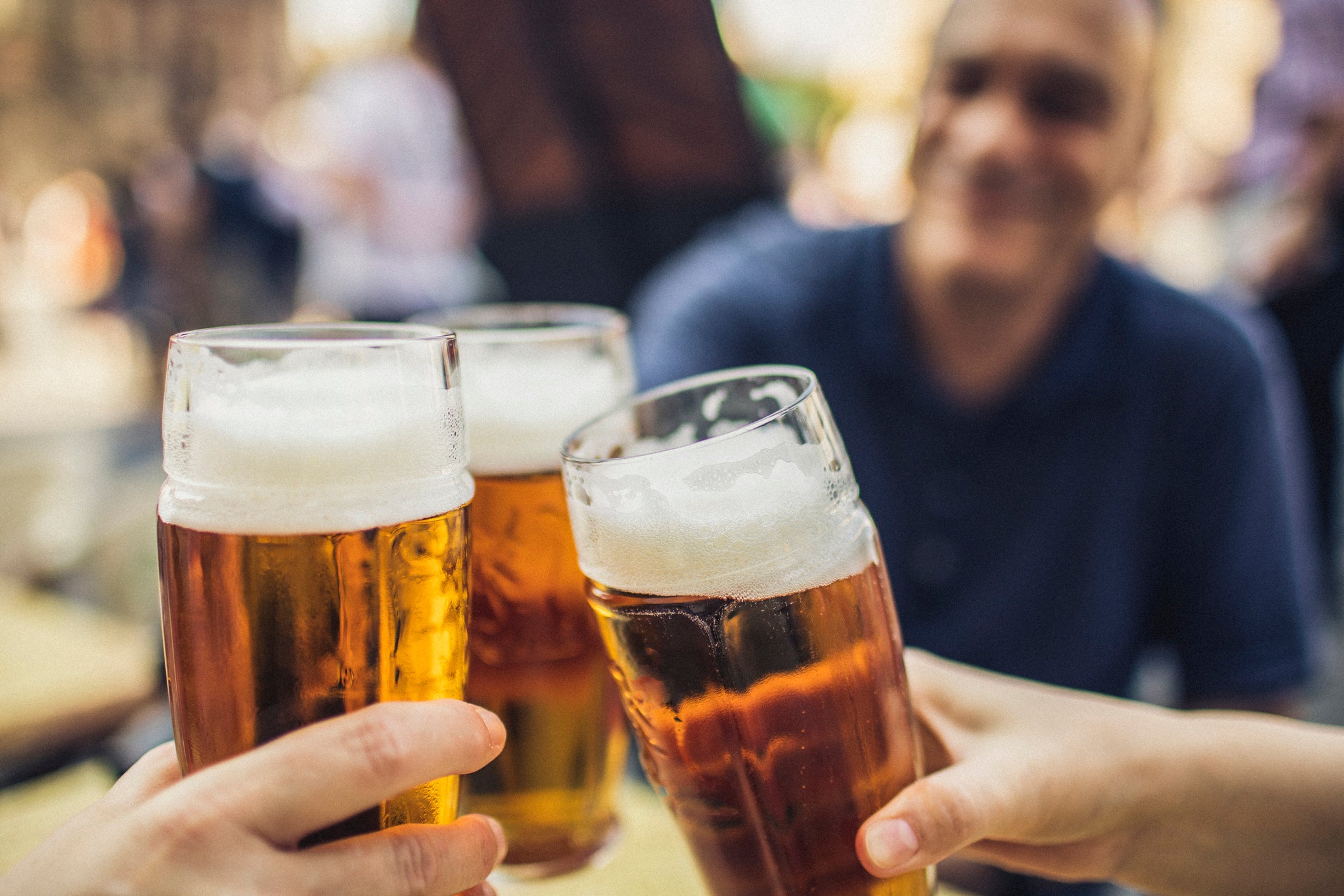Beer is considered a comparatively low-risk beverage for getting food poisoning. It is highly unlikely to harbor dangerous germs causing food-related diseases. However, occasional cases of people experiencing gastrointestinal disturbances after consuming beer have been reported.
This blog will look at how likely you are to get food poisoning after consuming beer, the symptoms associated with food poisoning, and tips on avoiding food poisoning.
Table of Contents
ToggleWhat is Food Poisoning?
According to WHO, tainted food is the reason behind over 200 diseases, affecting your overall well-being. Most food poisoning cases present gastrointestinal disturbances, such as stomach aches, diarrhea, nausea, and vomiting, as the most classic symptoms.
Do I have Food Poisoning?
You should contact a professional health physician if you suspect you are suffering from food poisoning. Minor cases of food poisoning have been known to resolve independently, but some might become major and worsen dramatically, posing a severe health risk.
Some severe symptoms indicative of food poisoning include:
- Bloody Diahrrea
- Intractable Vomiting (you vomit out the liquids as soon as you drink)
- Diahrrea lasting greater than three days
- High Fever (Over 102°F)
- Dehydration (Dry throat, decreased urination, sunken eyes, dry tongue or lips)
Contact emergency services in case of any of the symptoms mentioned above.
Please note that symptoms of food poisoning caused by beer are not distinct from traditional food poisoning. Therefore, only a registered health professional can evaluate your symptoms to determine the cause of your food poisoning.
Components of Beer: How is Beer Made?

Regardless of the many kinds of beer, the process and ingredients remain analogous. Let’s have a look.
Ingredients
The following are the main ingredients, and any additional ingredients may be added to enhance flavor.
- Malts
- Hops
- Water
- Yeast
The process is known as brewing and follows a series of steps. In short, the malts (grains, primarily barley) undergo a complex process that first breaks down the starch in the grains into sugars, and the yeast ferments those sugars to alcohol. The distinctive step in brewing beer is the addition of flowers of the hop plant, which imparts a bitter taste and gives beer its characteristic aroma and flavor.
Please note, as discussed, at the end of the brewing process, traces of sugars are left in the beer after the beer is filtered and packaged. The yeast consumes most of the sugars during fermentation, making it less susceptible to bacterial and fungal growth.
What are My Chances of Getting Food Poisoning from Beer?
The chances of contracting food poisoning from beer are relatively low since its components do not provide ideal environments for germs to thrive. Beer is usually labeled as a “low-risk” beverage in terms of food poisoning. In fact, alcohol is famous for its disinfectant properties. Therefore, if you consume beer directly from a bottle or a can, you don’t need to worry about getting sick.
Nevertheless, it is important to be cautious when consuming beer fused with other drinks, such as cocktails. Although the chances of having harmful bacteria in your beer are minimal, the other ingredients used in the mixer or cocktail might inadvertently contaminate the beer and lead to food poisoning. However, it is usually not a concern, and these non-alcoholic components of the cocktails carry the same risk for food poisoning as your regular juices or sodas.
Signs of Bad Beer
If there’s even a hint of suspicion that your drink may be contaminated, it’s best to steer clear of it entirely. Safety should always come first. Here are a few ways to tell your beer might be showing signs of contamination.
Off-smell
If your beer smells funky, sour, or like wet cardboard, it’s a sign that it has gone bad.
Strange Appearance
Look for any changes in the color or clarity of your beer. Cloudiness or unusual sediment could indicate spoilage.
Foul Taste
If your beer tastes excessively bitter, sour, or vinegary, it’s likely spoilt. Trust your taste buds!
Excessive Foaming
While some foaming is normal, excessive foaming can be a sign of contamination or spoilage when pouring your beer.
Mold or Floaties
If you spot any mold growth or floating particles in your beer, it’s definitely time to say goodbye to it.
Expired Date
Check the bottle’s or can’s expiration date. If it’s past the date, there’s a high chance that the beer has gone bad.
How to Keep Your Beer from Going Bad
To make sure that your beer retains its characteristic aroma and taste, you can take some precautionary measures. Follow these tips to ensure the quality of your beer is preserved, keeping the risks of food poisoning at a minimum.
Proper Storage
To keep your beer tasting great, find a cool and dark spot away from sunlight and heat.
Seal it Like a Pro
Once you crack open that bottle, reseal it firmly if there’s some left after you’re done. Oxygen is a beer’s worst enemy that spoils taste and quality – it chemically destroys the alcohol content and makes it more prone to contamination.
Consistency is everything
Keep temperature changes to a minimum since fluctuations and high heat can spoil your beer faster.
Fresh is the Best
Maximize your beer’s flavor by drinking it within the suggested time frame on the label. You’ll be able to appreciate its flavor and won’t have to worry about getting food poisoning or any other health issues.
Cleanliness is the Most Important
Always use clean glasses to keep bacteria and other pathogens at bay when pouring your beer. Cheers to pure, untainted deliciousness!
Temperature Matters
Different beers shine at different temperatures, so check the label for the ideal serving range and treat your taste buds to the ultimate experience.
Conclusion
You cannot get food poisoning from drinking beer since it usually doesn’t harbor any bacteria or fungi that can cause food poisoning. However, you can get sick if your beer is left open to oxidation, mixed with contaminated food, or served in dirty glassware. Regardless of how low the chances are, you need to be careful and check thoroughly before consuming it. With adequate safety measures, you can enjoy your favorite beer without any health concerns.

I am a passionate beer connoisseur with a deep appreciation for the art and science of brewing. With years of experience tasting and evaluating various beers, I love to share my opinions and insights with others and I am always eager to engage in lively discussions about my favorite beverage.
















